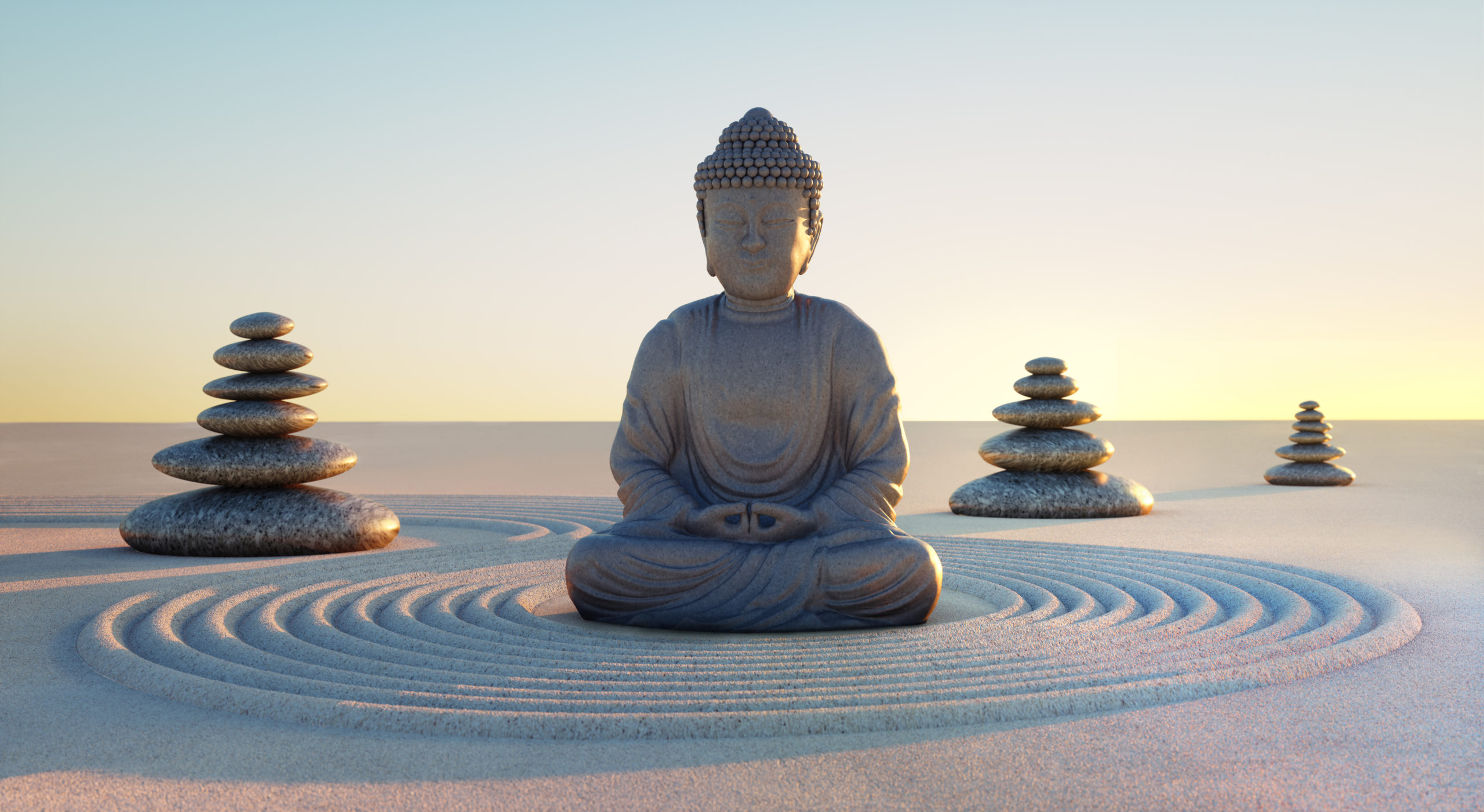Zen House - Your Ultimate Guide To Peaceful Living Spaces
Imagine stepping into a space that soothes your soul and calms your mind. That’s what a zen house offers – a sanctuary of simplicity and serenity. With its minimalist design, natural elements, and thoughtful layout, the zen house has captured the hearts of many seeking tranquility in their everyday lives. Whether you’re remodeling your home or building from scratch, this style can transform any living area into a peaceful retreat.
This trend isn’t just about aesthetics; it’s about creating an environment that promotes relaxation and mindfulness. From clean lines to creative lighting, every detail in a zen house contributes to a harmonious atmosphere. If you’re curious about how to incorporate this concept into your life, keep reading. We’ll explore what makes a zen house unique, practical tips for designing one, and why it’s more than just a design fad.
As we delve deeper, you’ll discover how simplicity and functionality come together to create spaces that feel both cozy and calming. Let’s take a closer look at what defines a zen house and how you can make it work for your lifestyle. So, let’s get started!
What Exactly Is a Zen House?
Have you ever wondered what sets a zen house apart from other home designs? At its core, it’s all about embracing simplicity and reducing clutter. A zen house focuses on open spaces, natural materials, and balanced proportions. This design style draws inspiration from traditional Japanese architecture, where every element serves a purpose without overwhelming the senses.
For example, instead of elaborate decorations, a zen house relies on subtle textures and soft colors to create warmth. Think wooden floors, stone accents, and neutral tones that invite calmness. Additionally, the use of large windows allows natural light to flow freely, enhancing the feeling of openness. In a way, these homes are like a breath of fresh air amidst our often chaotic world.
Why Should You Choose a Zen House?
So, why would someone opt for a zen house over other styles? It’s not just about looking good; it’s about feeling good. Living in such a space encourages mindfulness and reduces stress. Imagine waking up every morning to a room filled with sunlight and minimal distractions. Wouldn’t that set the tone for a peaceful day?
Besides, maintaining a zen house tends to be easier than you might think. With fewer items to manage and more emphasis on quality over quantity, cleaning becomes less of a chore. Plus, incorporating plants and natural elements adds a touch of life without requiring much upkeep. Honestly, it’s a win-win situation for anyone who values simplicity and serenity.
How Do You Begin Designing Your Own Zen House?
Alright, now that you know the benefits, how do you start designing your own zen house? First, focus on decluttering. Get rid of anything you don’t need or use regularly. Then, choose materials that resonate with nature, like wood or stone. These elements help ground the space and bring it closer to the outdoors.
Next, think about lighting. Natural light is key, so consider installing larger windows or skylights if possible. Artificial lighting should complement this, using soft bulbs that mimic daylight. Finally, arrange furniture in a way that maximizes space while maintaining flow. Sometimes, it’s almost like rearranging pieces of a puzzle until everything feels just right.
What Are the Key Features of a Zen House?
Let’s talk about the essential features that define a zen house. One of the most noticeable aspects is the open floor plan. Removing walls creates a sense of spaciousness, making even smaller homes feel airy. Another hallmark is the use of natural light, which transforms interiors and keeps them bright throughout the day.
In addition, zen houses often feature neutral color palettes, allowing the beauty of natural materials to shine through. For instance, you might see wooden beams exposed on ceilings or bamboo screens dividing rooms. Even small details, like door handles or light fixtures, tend to be understated yet functional. Overall, the goal is to create harmony between form and function.
Can You Add Personal Touches to a Zen House?
Of course! While zen houses emphasize simplicity, they don’t have to lack personality. You can add personal touches by incorporating meaningful objects or artwork that reflect your interests. For example, a collection of seashells or a painting of a favorite landscape could bring character to the space without disrupting its calm vibe.
Similarly, consider incorporating scents that promote relaxation, such as lavender or eucalyptus. These subtle additions can enhance the overall atmosphere without overwhelming it. Just remember to keep things balanced – too many decorative items could detract from the zen aesthetic. More or less, it’s about finding the right mix of personalization and minimalism.
Where Can You Find Inspiration for Your Zen House?
Nowadays, there are plenty of resources to spark ideas for your zen house. Websites, magazines, and social media platforms are full of stunning examples. For instance, you could browse images of traditional Japanese homes or modern interpretations of the style. Sometimes, it’s just a little idea that gets the ball rolling.
Alternatively, you might visit local showrooms or attend design events to see zen concepts in person. Talking to architects or interior designers specializing in this style could also provide valuable insights. Ultimately, the best inspiration comes from understanding what makes you feel peaceful and incorporating those elements into your space.
What Are Some Common Misconceptions About Zen Houses?
There are a few common misconceptions about zen houses worth addressing. One is that they must be completely bare or devoid of color. In reality, zen homes can include pops of color and thoughtful accessories as long as they align with the overall theme. Another assumption is that these spaces are cold or sterile, but when done right, they’re incredibly inviting.
Additionally, some people believe that achieving a zen house requires a significant budget. While high-end materials can certainly enhance the look, there are plenty of affordable options available. For instance, reclaimed wood or secondhand furniture can add character without breaking the bank. Honestly, it’s more about intention than expense.
How Does a Zen House Benefit Your Well-Being?
Living in a zen house can significantly improve your well-being. By reducing visual noise and promoting relaxation, these spaces encourage mindfulness and reduce stress levels. Many people find that spending time in a zen environment helps them focus better and feel more grounded.
Moreover, the emphasis on natural materials and ventilation contributes to better air quality, which is crucial for overall health. Even something as simple as having plants around can boost mood and productivity. In short, a zen house isn’t just a design choice – it’s an investment in your mental and physical well-being.
What Are Some Challenges When Creating a Zen House?
Like any project, designing a zen house comes with its own set of challenges. One potential hurdle is striking the right balance between minimalism and personality. Too much simplicity can feel sterile, while too many decorations can clutter the space. Finding that sweet spot takes practice and patience.
Another consideration is ensuring functionality alongside aesthetics. A zen house should feel practical for everyday living, not just look good. For example, storage solutions need to be both discreet and accessible. Still, with careful planning and attention to detail, these obstacles can be overcome. Sometimes, it’s just a matter of tweaking things until they feel just right.
Table of Contents
- What Exactly Is a Zen House?
- Why Should You Choose a Zen House?
- How Do You Begin Designing Your Own Zen House?
- What Are the Key Features of a Zen House?
- Can You Add Personal Touches to a Zen House?
- Where Can You Find Inspiration for Your Zen House?
- What Are Some Common Misconceptions About Zen Houses?
- How Does a Zen House Benefit Your Well-Being?
Ultimately, a zen house represents more than just a design trend – it’s a lifestyle choice that prioritizes simplicity, mindfulness, and connection to nature. Whether you’re looking to revamp your current home or build anew, embracing this philosophy can lead to a more peaceful and fulfilling living experience. So, why not give it a try and see how it transforms your space?



Detail Author:
- Name : Dr. Ignacio Runolfsdottir
- Username : yfeest
- Email : bkoch@kozey.com
- Birthdate : 2002-01-08
- Address : 271 Schaefer Square VonRuedenton, OR 15330-1598
- Phone : +1-480-579-0173
- Company : Huel, Labadie and Keebler
- Job : Accountant
- Bio : Atque inventore aut consequuntur laudantium quis. Cumque itaque sunt tenetur neque consectetur et quaerat. Enim ab eveniet aut et.
Socials
instagram:
- url : https://instagram.com/kuhn1987
- username : kuhn1987
- bio : A illum est dicta. Amet soluta iste quos qui. Ut voluptas occaecati eius incidunt iste.
- followers : 1622
- following : 364
tiktok:
- url : https://tiktok.com/@nelskuhn
- username : nelskuhn
- bio : Alias temporibus nobis placeat error earum possimus vel incidunt.
- followers : 4148
- following : 2693
facebook:
- url : https://facebook.com/nels.kuhn
- username : nels.kuhn
- bio : Tenetur molestiae itaque est id veritatis.
- followers : 5214
- following : 1814
twitter:
- url : https://twitter.com/nelskuhn
- username : nelskuhn
- bio : Et rerum incidunt et occaecati dignissimos ut. Qui autem autem ipsum ut. Quae incidunt voluptatem velit nam repellat accusantium.
- followers : 4812
- following : 198